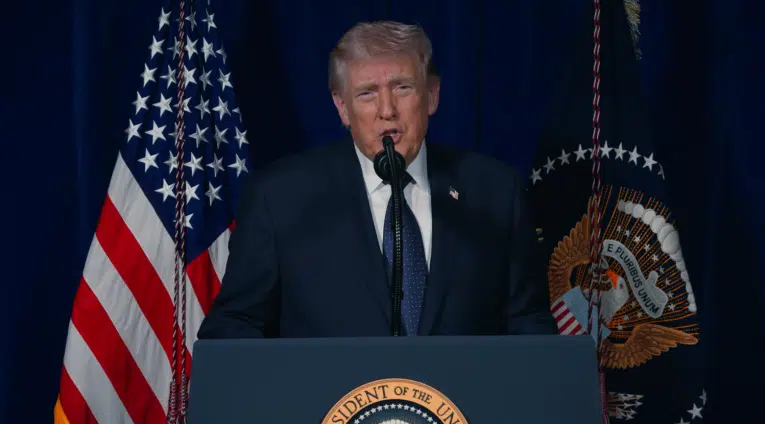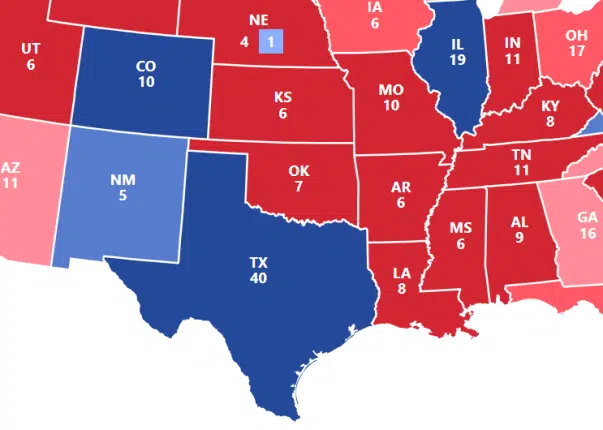This week energy giant Exxon Mobil lost its prestigious place as one of 30 companies in the Dow Jones Industrial Average. Its replacement: enterprise software company Salesforce.com. According to S & P Dow Jones, the change was driven by Apple’s decision to split its stock, which reduced the index’s tech-sector weighting.
However, some say Exxon Mobil’s removal is a direct result of its decision to cozy up with liberal climate change activists who are now pushing for the Green New Deal to eliminate petroleum production and all other carbon emissions.
“Not terribly long ago, Exxon was the most valuable company in the U.S.,” said Justin Danhof, Director of the Free Enterprise Project at the National Center for Public Policy Research, a free market-oriented research foundation. “And now they are a shell of what they once were.”
Danhof said Exxon Mobil used to contribute to market-oriented advocacy and policy groups such as the American Legislative Exchange Council that helped the energy giant grow and prosper. “Those kinds of group were very helpful to Exxon,” said Danhof. But he said beginning in the mid 2000’s the company made a strategic decision to cut ties with many of its allies and chase the approval of the Environment, Social, Governance (ESG) crowd. “I guess if you are Exxon, your strategy is to keep your enemies close and throw your friends under the bus,” quipped Danhof.
In 2015, Exxon Mobil very publicly supported the now discredited Paris climate agreement, noting in a press statement, “ExxonMobil has for many years held the view that a revenue-neutral carbon tax is the best option to fulfill these key principles.”
The ESG agenda has been driving corporate and even federal investment policies in recent years. Through regulatory channels, President Obama changed the guidelines for the Department of Labor’s investment duties regulations under the Employee Retirement Income Security Act (ERISA). Previously, the Act directed that pension fund managers make investments to maximize investor returns. The Obama administration changed the guidelines so that fund managers could make investment decisions based on a company’s ESG profile.
“This is nonsense,” said Rick Manning, President of Americans for Limited Government. “Investment decisions should always be based on maximizing returns for the investor, not in promoting a political agenda.”
Last month, Manning was part of a coalition of free-market advocacy groups and individuals that sent a letter to the Secretary of Labor voicing support for a return to the former ERISA guidelines. The letter called the Department of Labor’s new proposed rule an “important protection for pensioners and 401(k) investors against involuntarily paying the price for a political ‘thumb on the scale’…”
The letter warned that “Under the banner of ‘environmental, social (justice), and governance (ESG),’ mutual fund and pension managers are increasingly investing in ways that advance their political and social predilections, but may not be consistent with their duties to clients… The Labor Department is reminding pension managers that there is a place for politics and a place for sound investment decisions. When ESG investments put politics over fund performance, they are unsuitable.”
“The liberal mob can never be satiated,” added Manning. “Companies and politicians who try to appease them do so at their own peril.” He said Exxon Mobil’s “full embrace of the Left and climate hysteria, has led to their falling out of this listing of our nation’s top blue chip companies.”
Danhof said corporate embrace of “Left wing ESG causes gets them positive headlines in the New York Times, but is a poor long-term strategy.”
Or as Winston Churchill once famously said, “An appeaser is one who feeds a crocodile, hoping it will eat him last.”
Catherine Mortensen is the Vice President of Communications at Americans for Limited Government.






